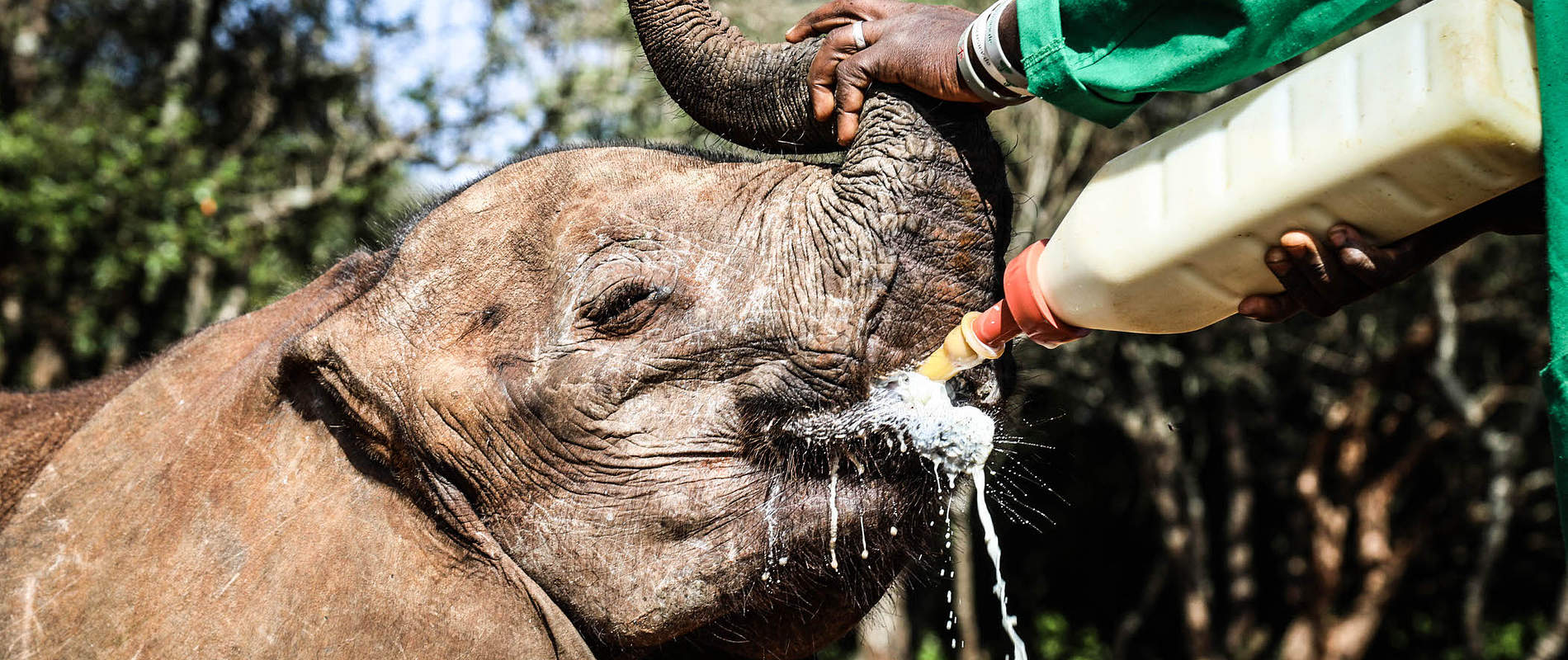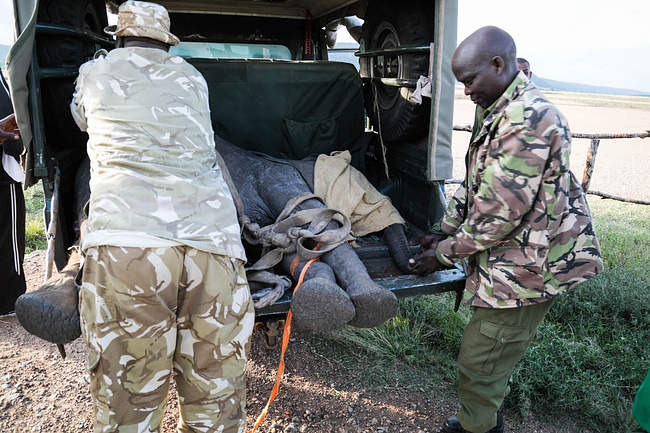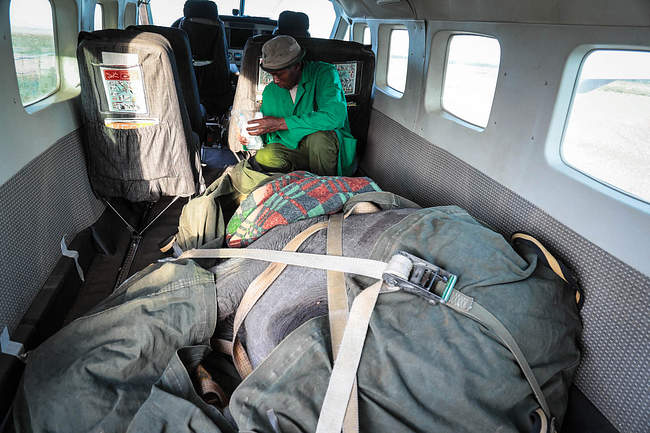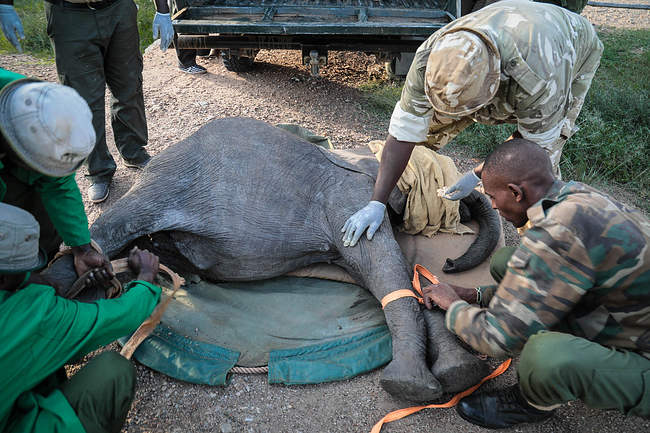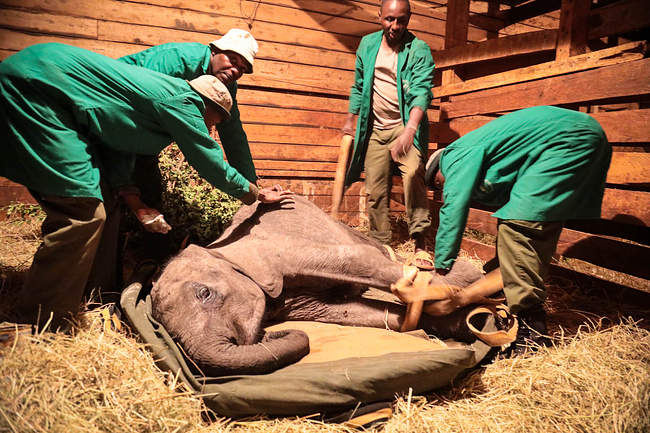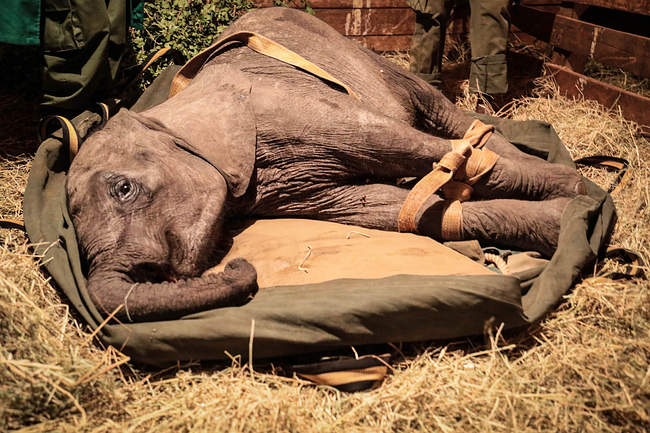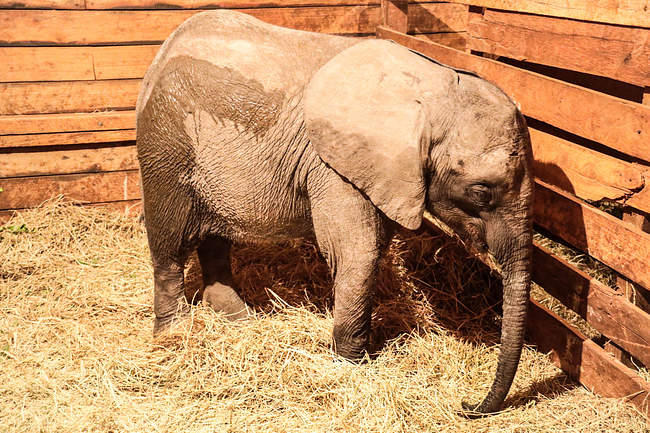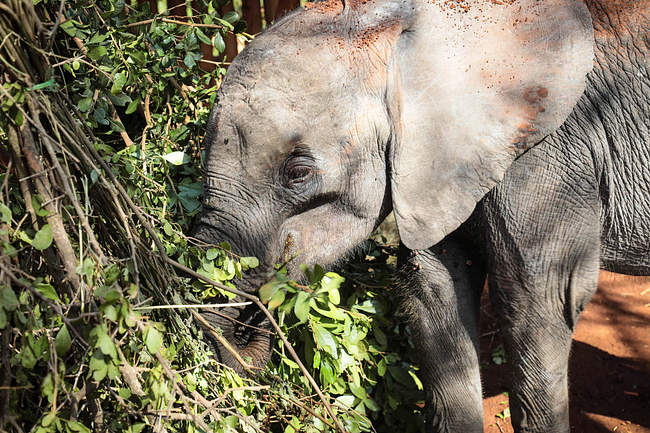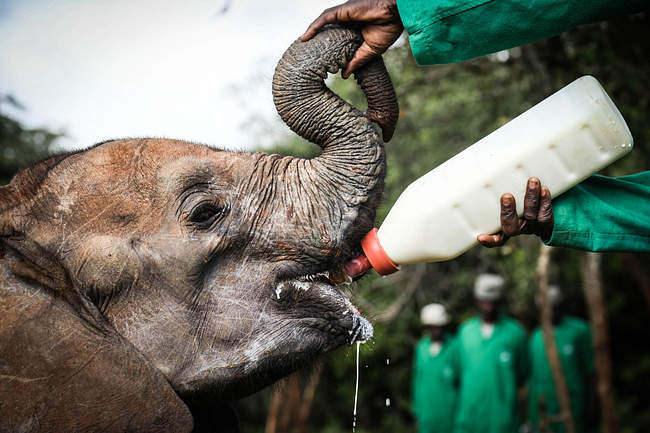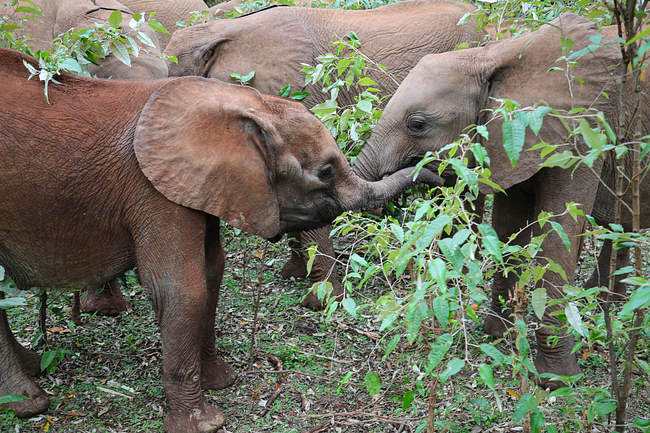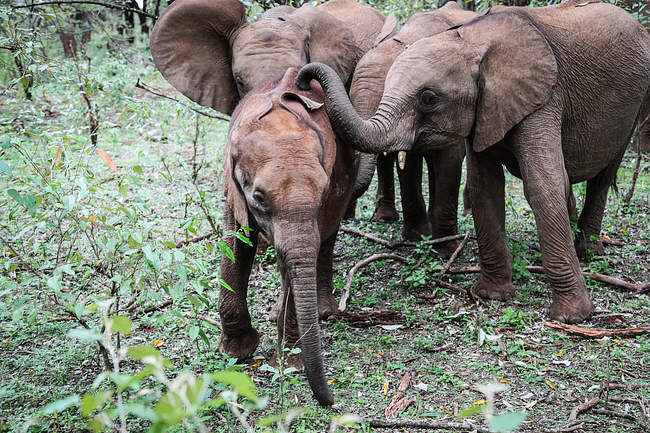On 6th April 2019, a lone calf was first spotted wandering within the Oloisukut Conservancy in the greater Maasai Mara so the Conservancy rangers were tasked to monitor her and report back in case she joined up with a herd.
On 7th April, the same calf was reported 10 kms away still alone and now wandering within community lands near Enasoit area and apparently had been following herds men with their livestock, and any vehicle that came close, seemingly desperate for company. Very sadly the community had fired two arrows into her, and the SWT/KWS Mara Mobile Veterinary Unit was duly informed of this with KWS requesting she be retrieved and rescued, given that she was now visibly growing weak and her ventures into unprotected community lands was endangering her own life, and stressing the villagers out given that she was approaching young herds boys with their goats and sheep.
She was easy to locate and the SWT/KWS Vet team were able to physically restrain her without the use of drugs, fearful that she was too weak to cope with sedation. One arrow head was removed and the wounds cleaned and antibiotics administered before transporting her in the back of the land cruiser to Kichwa Tembo airstrip in the Mara Conservancy. The Nairobi Nursery team had in the meantime been informed and an aircraft with elephant Keepers on board was already en route to the Mara, arriving soon after the team with the calf, so everything was carefully coordinated given that time was marching on and the hour was growing late.
Assisted by KWS rangers and community scouts the Veterinary team and Keepers strapped the calf for flight, as we always do, so that they remain still and safe throughout the journey, and then with many hands helping she was hoisted into the aircraft and made comfortable before being flown to Nairobi with IV drips infusing into her ear vein throughout the flight. Enkesha was moved into a stockade and our new arrival replaced her in the stable close to Maktao. She was visibly stressed but at the same time too weak to thrash around, but did take her milk. It was clear that she was riddled in parasites, had obviously been alone a long time before being first spotted, and as a result her condition had deteriorated.
While she had a rotund tummy, this was deceiving, because infact she had little strength with the combination of parasites and a lack of milk taking its toll. We knew we were going to have a long road ahead getting this baby elephant healthy again, and our little girl was definitely traumatized by events. As the days passed we had a number of collapses happening which needed a quick response to keep her alive, and so it was that she remained in her stable for a good week before we felt it was safe for her to venture out.
As it turned out she had become totally hooked on the confines of her stable, finding solace in this safe warm environment and was at first extremely reluctant to leave its confines. Very early on we noticed something strange, as if she lost sight for a time, as she would sometimes walk into the wooden walls of her stable. We called an eye specialist to come and take a closer look to see if all was well with her sight and it was confirmed that her eyes were not affected. When she eventually mustered up the courage to leave her stable it was baby steps at first, just around the compound.
By this time she was hooked on her Keepers and would not leave their sides, and she remained too weak to consider anything more than traipsing around the Nursery area. We named our fragile little girl Ziwadi, which means ‘a gift’ in Swahili. She was a vulnerable one year old calf, and I think given her behaviour and subsequent physical challenges, must have suffered more trauma both physical and mental than we were initially aware of, all before she was retrieved and came into our care.
Ziwadi’s routine did not change for many weeks; we took everything at her pace. We still had the bouts of no sight when she would walk into a barrier that earlier she had navigated, or walk into a tree, but these would pass, and to this day she has a quirky idiosyncrasy of drinking water by plunging her head in the water troughs, drinking by mouth rather than using her trunk, although she can drink with her trunk, and does so occasionally. Slowly we managed to coax her out into the forest where she first joined Luggard, and then finally the others.

One day while out in the Park she fell to the ground, and Keeper Peter rushed to her side only to notice her shaking while lying there, but at the time assumed she had tripped on a stick and fallen and the shaking was because of her general weakness which we had experienced before. Our battle with parasites was on-going, so not much was made of that incident, putting it down to the usual weakness we had been dealing with up until this point. It then happened again on another occasion, this time when she was bedded down for the night, resting on the soft hay of her stable. She began shaking uncontrollably, and it was obvious she was having a seizure, and this time the Keeper on duty was able to film it so we could all witness what happened. While disconcerting to watch, the seizure passed and in its wake everything resumed to normal.
These bouts have been puzzling for us and the Vets, as it has happened a few times since, in various differing scenarios, manifesting like epileptic seizures. These are the reasons we have been so cautious in placing Ziwadi on our fostering program, mindful that this little elephant has traveled a hard road and definitely has some neurological issues. We have however noticed that these bouts, and the temporary blindness, have become less frequent recently, and Ziwadi is beginning to mix in more comfortably with the other orphans, even venturing down to the midday mud bath and our public visiting one hour time.

She is a very sweet gentle elephant, who loves to wag her tail enthusiastically when relishing her cut greens either when in her stable or at the visiting hour. We are working hard to heal Ziwadi, both physically and psychologically, and have seen immense improvement over these past three months, so we are extremely hopeful that she will make a full recovery with time.
